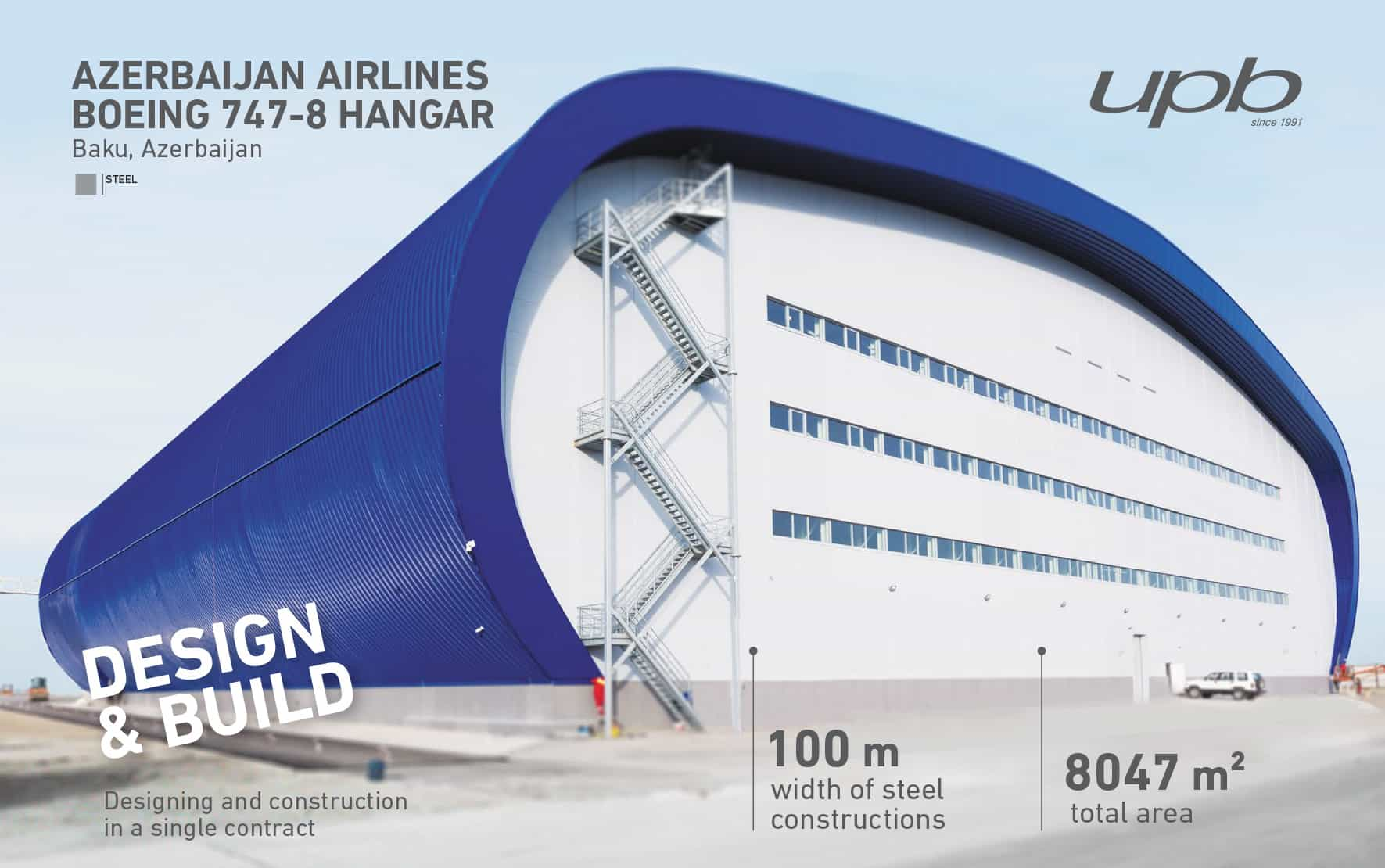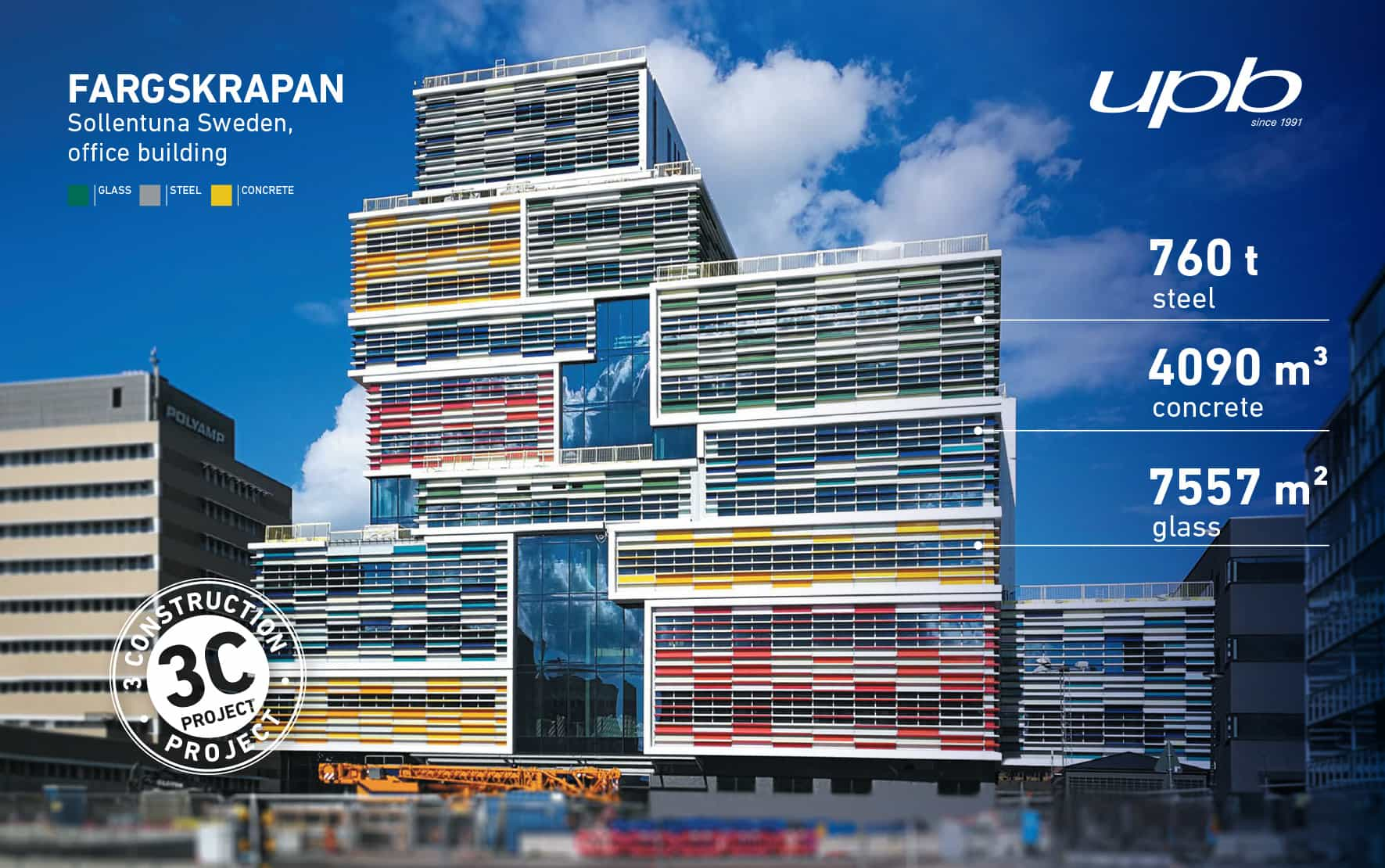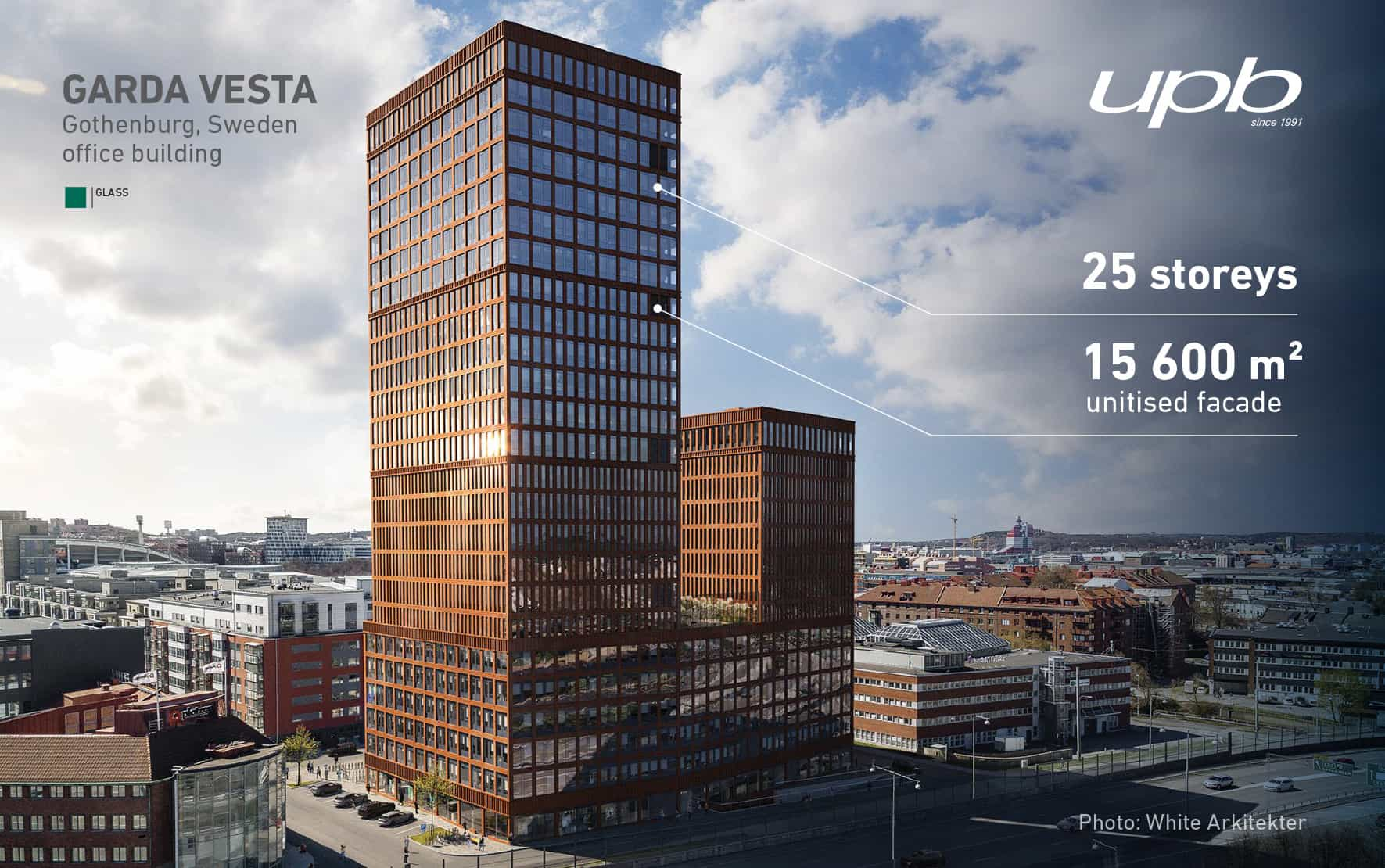04.02.2020
UPB group’s consolidated net turnover reached 212 million euros in 2019.
Last year was a year of growth for UPB as well. In 2019, UPB group’s consolidated net turnover reached 212 million euros. It has grown by a hundred million euros since 2015. The projects the group worked on were even bigger and more complex. Its companies continued developing new and innovative products, investing in expanding their offices, boosting production capacity and updating the technologies they use.
UPB is proud of having completed a number of major Design&Build projects. The biggest of them is the Boeing 747-8 hangar in Baku Airport, Azerbaijan, the total area of which is 8046 m2. The designers had to account for seismic activity, high winds (41 m/s) and the peculiarities of fire safety regulations. Meanwhile, the Liepāja Olympic Centre’s Tennis Hall was completed here, in Latvia. Last year, UPB signed the contract for the design and construction of the SĀGA shopping centre, making it the biggest Latvian project in UPB’s history, with a total area of 59,000 m2.

We also completed the design of a multifunctional building complex in Riga, Latvia, and signed a contract for its construction. Its construction will involve the latest tech in concrete, glass and wood—such as glass structural columns, automated lifting roof in the central section, frameless self-supporting glass facades and a green roof with solar panels.
Major framework, facade and 3K projects, which combine glass, steel and concrete structures, have been performed for the export market. The most extensive projects completed last year include the headquarters of the beer manufacturer Carlsberg in Denmark, for which UPB designed, manufactured and installed a facade coated in copper and copper composite, as well as the Princeton 13-floor office building in Sweden, and the Parallell 16-floor office building in Norway. The Fargskrappan community building was an impressive 3K project in Sweden. The building has 15 floors, and its frame was built using 760 t of steel and 4090 m3 of concrete, while the facade consists of glass structures of 12 colours (a single element may have up to six different colours).

This year will see continued work on other big projects, such as the Farringdon West office building in London, built on top of a building for a new line of the London Underground, making it a particularly complex and demanding project at all of its stages of completion, the Platinan office building in Sweden, and the Garda Vesta high-rise building in Sweden, which must meet strict fire and explosion resistance requirements. We are also designing, manufacturing and installing steel and concrete structures for the City Gate 37-floor office building in Sweden, which will be 144 m high upon completion; the tallest office building in the Nordic countries.

We have been increasingly active in getting involved in the early stages of various projects, sharing knowledge and consulting our clients in finding the best solutions for their buildings before any design work is carried out. There have been more projects with highly processed wall elements, such as factory-installed windows, brick treatments, tile finish, terracotta finish, pigmented concrete, curved surfaces, GRC solutions etc. UPB boasts extensive expertise in the fields of sustainable and energy-efficient construction, and we are very happy to see it used in Latvia: the UPB-built Liepāja Olympic Centre indoor arena was declared 2019’s most energy-efficient civic building in Latvia. On our construction sites, we are continuously working on implementing new occupational safety solutions: working in a safe and responsible manner is a priority in everything UPB does.
In order to facilitate further development of the UPB group, we invested in nearly all of our business structures. A new transit-mixed concrete facility was set up in Latvia, and we continue modernising our transit-mixed concrete infrastructure and expanding the vehicle fleet. Our concrete transport and pumping service experiences stable growth in Sweden, and we have gained reliable business partners and prospects for expanding into Norway and Denmark.
The Concrete Research Centre created a new accredited laboratory in Daugavpils (Latvia), and we are preparing for setting up new premises for the lab in Riga (Latvia). At the same time, we conducted various projects for developing new concrete products: we developed a new solution for glass-fibre reinforced concrete (GRC) lining, and worked out complex concrete formulas for high-strength and self-sealing concrete.
Our prefab concrete component factories have undergone a major digitisation programme, and the expansion and upgrade project for the Liepāja prefab concrete facility has entered its design stage. A total of 10 million euros has been invested in expanding the factory, with the construction slated to begin this year.
The manufacturing spaces of the glass production centre have grown by 50%, and there is work done on improving its equipment, such as the new glass unit production line, a laminated glass cutting rig, or a glass edge grinding machine.
The amount of mechanical engineering products we made went up by 26% year-on-year, and our presence on the Finnish market rose by 21%. The investments also include buying various hardware and software that improves production efficiency. The biggest projects included components for stone quarry machinery in Norway, agricultural equipment for the Finnish market, a special pipe bending device, and a large, 14,000-litre bulk cargo loading bucket.
Our activities in energy engineering included a 600 kW cogeneration plant made at our Liepāja, Latvia factory for a hospital in Basel, Switzerland, meeting its strict requirements for sound insulation. We set up a 50 kWe cogeneration plant at the beer factory of ‘Užavas alus’, to provide it with the electric power it consumes. The plant uses liquefied natural gas, making its installation possible even in a place with no centralised natural gas supply. Last year, we signed a few contracts for building innovative production systems in Latvia, such as the construction of a main heating line to connect the heating systems of Baloži and Titurga, and the construction of a heat battery system for AS Latvenergo’s CHPP-2.
In conjunction with construction experts, a subsidiary of UPB group, Alto 4.0, has developed Alto ERP, which is a system for planning company resources and optimising the business cycle in a centralised and comprehensive way, significantly reducing the number of manual operations, and enabling its users to implement projects with greater added value. The system is designed for manufacturers of reinforced concrete, prefab facade and steel structures, as well as main contractors in construction projects.
Cooperation with Latvia’s schools is an integral component of UPB group’s business. Last year, we completed a few research projects; for example, together with Riga Technical University, we developed innovative methods for improving and monitoring the resistance of concrete to frost, gaining valuable knowledge in the potential of using local materials for developing and manufacturing durable and cold-resistant concrete. We continue supporting young people by helping organise various workshops and education activities.
UPB is one of the leading industrial groups in the Baltic states. The name UPB has been well-known in fields such as design, production, logistics, construction and services for more than 28 years. Our group takes advantage of being able to offer integrated solutions for glass, steel, concrete structures, and in energy and mechanical engineering. The companies of the UPB group and their factory network cover all of Latvia, with the production areas reaching 62,000 m2. The largest of these companies are MB Betons group, RK Metāls group, AILE group, UPB Energy group and UPB Nams group. UPB currently employs more than 1800 people. UPB has representative offices in 10 countries: Latvia, Sweden, the United Kingdom, Ireland, Norway, Denmark, Germany, Switzerland, Belarus and Azerbaijan.
